第36章
Since in every class of things, as in nature as a whole, we find two factors involved, (1) a matter which is potentially all the particulars included in the class, (2) a cause which is productive in the sense that it makes them all (the latter standing to the former, as e.g. an art to its material), these distinct elements must likewise be found within the soul.
And in fact mind as we have described it is what it is what it is by virtue of becoming all things, while there is another which is what it is by virtue of making all things: this is a sort of positive state like light; for in a sense light makes potential colours into actual colours.
Mind in this sense of it is separable, impassible, unmixed, since it is in its essential nature activity (for always the active is superior to the passive factor, the originating force to the matter which it forms).
Actual knowledge is identical with its object: in the individual, potential knowledge is in time prior to actual knowledge, but in the universe as a whole it is not prior even in time. Mind is not at one time knowing and at another not. When mind is set free from its present conditions it appears as just what it is and nothing more: this alone is immortal and eternal (we do not, however, remember its former activity because, while mind in this sense is impassible, mind as passive is destructible), and without it nothing thinks.